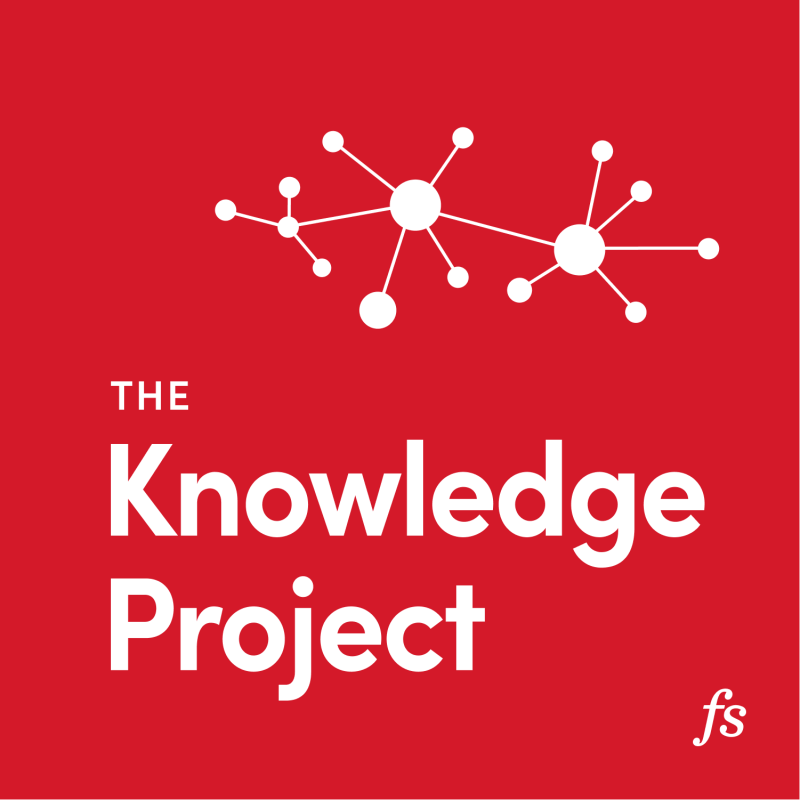The Knowledge Project closes 2022 with a look back at some of the best conversations of the year. Featuring interviews from 10 of the most downloaded and acclaimed episodes of 2022, this collection of conversations offers a variety of insights into evidence-based approaches to happiness, getting things done, small things you can do to make life great, eliminating drama, impulse control, making faster and better decisions, the core human nature that drives us all, sleeping better, slowing down your aging process, and what really matters.
Available now: YouTube | Apple Podcasts | Spotify | Transcript
Guests on this episode include: Happiness expert Lauie Santos, former Ford Motor Company CEO Alan Mulally, executive coach Marshall Goldsmith, leadership expert Diana Chapman, leading neuroscientist Dr. Andrew Huberman, LinkedIn founder Reid Hoffman, entrepreneur and venture capitalist Kunal Shah, sleep scientist Matthew Walker, aging expert David Sinclair, and business leader Sarah Jones Simmer.
Some highlights from the conversation:
One of my favorite most profound effects is the effect of taking a little time for gratitude, the simple act of counting your blessings. There’s evidence that in as little as two weeks, the simple act of writing three to five things you’re grateful for down on a piece of paper can improve your wellbeing, and significantly improve your wellbeing. – Laurie Santos
Many people, many leaders, if they have a red item, first of all, that embarrasses them, they think they’re not doing their job, as opposed to that red item is a gem. I clap when you have a red because you’re not red, it’s your item is red. Thanks for sharing that. Now we all can work together to help you and us turn the reds to yellows to greens. – Alan Mulally
Some people are lost in the aspiration phase. They have lofty ideas and dreams, they don’t achieve much, but they think a lot about big things. The people I coach and most of the people on this podcast, if they’re not careful, they overweight ambition and achievement. They’re lost in achievement. – Marshall Goldsmith
It takes a lot of awareness because to be a hero, you need victims. And then that means you are requiring people to be disempowered so you can hero. And that’s how we’re just going to create battles amongst us. – Diana Chapman
What I’m talking about is keeping the blade sharp on both sides, keeping the go’s intact, getting up, making your bed, getting into action, doing things, but also forcing myself to not check the phone, to not check email, to stay in a groove of focus. – Andrew Huberman
Then in simplicity, one of the things that I’ve learned by working at these organizations that are either at scale or getting to scale is simple plans are all that work. Simple things are the thing that can most easily spread without distortion within an organization. You want to have a certain simplicity of how you’re doing it, even if you are being overly simple. That’s the better side to err on for scale application. – Reid Hoffman
If you cannot distill your idea to a transmissible conversation at dinner, it’s not going to spread, and things that don’t spread will have a huge CAC because nobody really understands what the hell you are doing. That’s one framework that has worked. – Kunal Shah
But somewhere between childhood and adulthood, we abandon the notion that we need a wind down. Why don’t adults need a wind down routine? Now it doesn’t have to be your significant other coming in and reading you a bedtime story, even though that’s actually quite nice and in fact if you look at some of the meditation companies like Calm, for example, and Headspace, they have bedtime stories read by some wonderful characters like Steven Fry. – Matthew Walker
There’s a growing consensus that what happens is we lose information that we got in the womb. Part of it was from genetics, right? We’re carrying one copy in every cell of our mother and father’s chromosomes, but we’re also in fact, largely determined by what’s called, not the genome, which is the DNA, but the epigenome. – David Sinclair
I can specifically remember being, getting a biopsy and awaiting the results and then going through my inbox on my phone, and I couldn’t even process some of the things that were coming up. And when were these performance reviews and when? Like I just didn’t have the brain space, I needed to focus my emotional bandwidth on myself, and my family. – Sarah Jones Simmer
Timecodes:
00:00 – Intro
00:40 – Kunal Shah | Core human motivations
08:38 – Andrew Huberman | How to control your impulses
18:34 – Laurie Santos | How to be happy
25:29 – David Sinclair | How fasting helps you live longer
33:21 – Marshall Goldsmith | 3 things you need for a great life
41:20 – Diana Chapman | How to deal with drama
48:47 – Alan Mulally | Principles for working together
56:10 – Sarah Jones Simmer | What truly matters
01:05:08 – Reid Hoffman | Principles for making great decisions
01:13:16 – Matthew Walker | Things that ruin sleep

